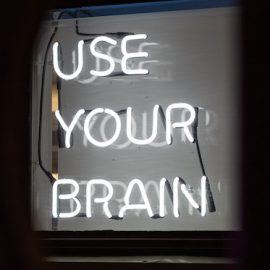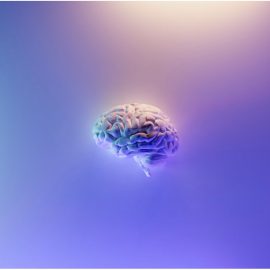

This article is an excerpt from the Shortform book guide to "The School of Life" by The School of Life. Shortform has the world's best summaries and analyses of books you should be reading.
Like this article? Sign up for a free trial here.
Is not knowing yourself normal? Why is it hard to know yourself? How can you develop a stronger sense of self?
According to the authors of The School of Life, not knowing yourself is normal because your thoughts, emotions, and beliefs can constantly change. They say, due to this, no one has a fixed identity. However, if we don’t attempt any self-reflection, we may end up making poor choices over and over again.
Read on to learn why not knowing yourself is normal and how you can develop a stronger sense of self.
Why It’s Hard to Know Yourself
The authors of The School of Life claim that understanding ourselves is extremely difficult. This is in part because our thoughts, emotions, and beliefs are constantly changing. There are no fixed points from which we can observe our psyches. We don’t even have a fixed identity, argue the authors: This is also always in flux. So, if not knowing yourself is a normal part of life, then how can you ever develop a strong sense of self? And are there other factors that influence how well you know yourself?
In this article, we’ll explain how the authors answer each of these questions.
(Shortform note: The idea that we don’t have a fixed identity and that we’re constantly changing is firmly rooted in Buddhist philosophy. Buddhists label this idea “non-self,” and they contend that “we” are really just a collection of changing physical processes, feelings, perceptions, responses, and consciousness. They believe that clinging to any single view of ourselves makes us suffer because that view of ourselves will inevitably change (identifying with youth is an obvious example of this—when we inevitably age, we suffer). So Buddhists diverge from the authors on how to deal with this flux: They suggest embracing the non-self, while the authors feel you should still try to know yourself better, even though it’s hard.)
Other Factors That Affect Knowing Yourself
Another reason you may be struggling with not knowing yourself is that we’re strongly shaped by genetics and childhood experiences, but we don’t know to what extent these inform our present thoughts, feelings, and reactions. For example, you may have a reflexive disgusted reaction to seeing someone eating fish but not realize this is because your parents hated fish and told you it was disgusting growing up.
(Shortform note: Not only are we generally shaped by our childhoods, but how we react to emotions is also shaped by our upbringing. So not knowing yourself could be due to what type of reaction you learned, which might be making it even harder to understand yourself. For example, your parents may have discouraged displays of emotion. In that case, you might hold your emotions in and let them fester or develop into forms of disordered thinking. This would then make it even harder to parse your feelings and understand yourself.)
To further complicate matters, as children, we subconsciously drew overgeneralized lessons from events that happened to us. We then carry those lessons into adulthood without understanding their origin. For instance, when our parents fought, as six-year-olds, we overgeneralized that all relationships were contentious. So today, we might flee from all relationships but have no idea why.
(Shortform note: Kids’ tendency to draw overgeneralized lessons can be explained by their undeveloped reasoning abilities. Children at kindergarten and elementary school ages can’t think abstractly or imagine alternative perspectives and scenarios. Without this ability, they can’t, for instance, reflect on why their parents might be fighting or the fact that usually, their parents aren’t fighting. Drawing sweeping conclusions might simply be the highest form of cognition they can master.)
How to Strengthen Your Sense of Self: First, Stop Blaming Yourself
The first step toward knowing yourself is acknowledging that you’re not fully in control of your behaviors and that much of your personality and beliefs are shaped by outside forces from the past. When you accept this fact, you don’t have to blame yourself for all your undesirable behaviors. You can also respond to challenges or conflicts with more equanimity and less self-righteousness: You see that you may be having a bad reaction due to a childhood experience and can accept that you might be in the wrong.
Next, See Others as Equally Hurt and Damaged
A big reason we don’t like to introspect is that we’re afraid we’ll find abnormally bad thoughts and beliefs in our psyches. However, the authors contend that most of what we think and feel isn’t unique to us. Therefore, one method of overcoming not knowing yourself is to simply understand that everyone is just as hurt, strange, and confused as you are. This will let you explore and acknowledge your own strangeness without shame and therefore cope with it better.
Finally, Try Psychotherapy
Psychotherapy is an excellent way to get to know yourself better, write the authors. Psychotherapy involves recounting what’s going on in your mind to a non-judgmental therapist. By prompting you to talk about certain things and keeping you on track of an important-seeming idea, therapists help you explore key disruptive aspects of your psyche.

———End of Preview———
Like what you just read? Read the rest of the world's best book summary and analysis of The School of Life's "The School of Life" at Shortform.
Here's what you'll find in our full The School of Life summary:
- Why most people lack emotional intelligence and make poor choices
- How emotional intelligence can make you feel more fulfilled in life
- How to gain emotional intelligence about yourself, others, relationships, and work






